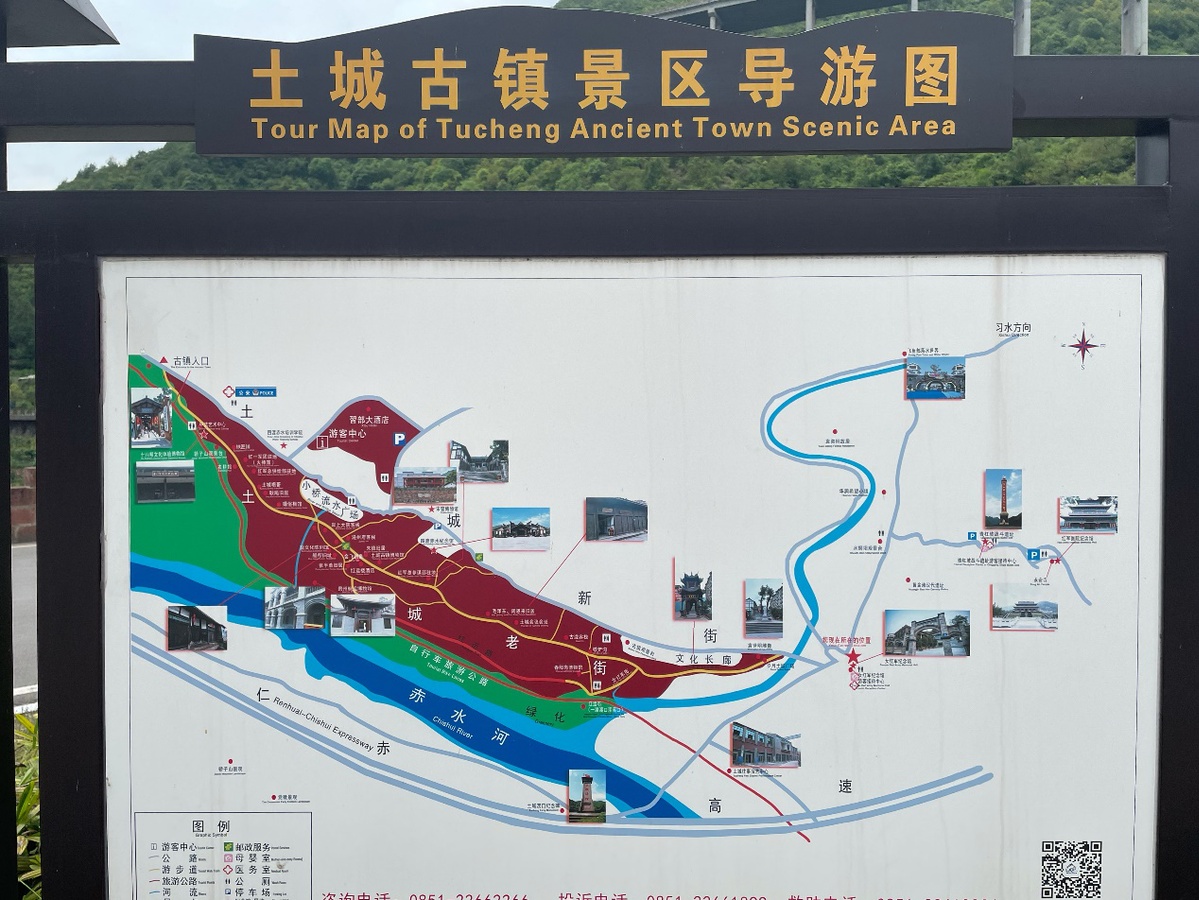Expressway puts isolated town on express growth


One of the high-profile sightseeing spots is the Siduchishui Memorial Museum, which commemorates the victory of the Red Army crossing the Chishui River as part of the Long March.
Last year, the museum handled two million trips.
The whole county has a population of 520,000.
Shui Cibo, a guide at Qinggangpo Heritage Park, recalled that though the heritage monument was established in 2002, few tourists or local residents came until the road was completed, even though it was only 3 kilometer away from the town.
But now, license plates in the parking lot show that visitors are coming not only from neighboring cities like Chishui, Guiyang, but also from farther places such as Hebei province and Beijing.
The convenient roads have also facilitated local people's daily lives by boosting e-commerce and modern logistics, contributing to the local economy.
Chen Hai, owner of a retail store, used to spend 90 minutes going to Chishui city to buy goods for her shop. Since an expressway opened in 2009, the trip has shorted to 50 minutes.
She also expanded the products she sold to cater to the growing number of tourists.
In addition, express delivery system has been established in the town with the opening of the expressway. Now, Chen can sell her local products at an online store and shipped to other parts of China in about 3 days.
China has launched a national campaign to improve road system in rural areas since 2014.
According to the Ministry of Transport, China's rural roads extend to 4.35 million km and account for about 84 percent of the total road network.
As of last year, most villages and towns had access to asphalt roads and were covered by bus services.
During the 13th Five-Year Plan period (2016-20), the rural road network in Zunyi city increased 2,950 kilometers.
According to official statistics, all villages in Xishui county have access to bus and paved roads now.
"In the past, villagers who worked as migrant workers were afraid of driving home during the Spring Festival because there were no paved roads," said Wang Wei, deputy head of Xishui county, adding that now it is no longer a problem and villagers can drive home without hesitation.
Shen Jincheng from Tsinghua University contributed to this story























